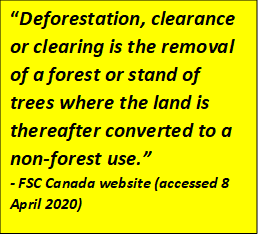Claims for 100% recyclable and 100% compostable seem to be proliferating. Are they accurate? Are they legal? Or are they just another form of greenwash?
It’s not surprising that North American consumers are confused. Because in common speech, the words “recyclable” and “compostable” can mean three different things:
- technically recyclable or compostable, meaning that the product can be physically taken apart for recycling or broken down for composting
- able to be collected, meaning that the municipality or service provider says you can put it out for recycling or composting collection
- that the product or material is commonly being recycled or composted already.
Each of these meanings is significantly different. But in terms of environmental labelling, which is what we are talking about here, the Competition Bureau Canada will accept only one. And that is whether the consumer can actually send the product or material for recycling or composting. It does not matter whether the product or material is technically capable of being torn apart or composted. It does not matter what the actual recycling or recovery rate of that material might be (that’s a whole other issue). What does matter is how many Canadians have access (“reach” in the US) to the recycling (or composting) of that product or material.
And the Competition Bureau has guidelines on how that access is determined and when you can use the words: “It is recommended that if at least half the population has access to collection facilities, a claim of recyclable (or compostable) may be made without the use of any qualification.” If less than half the population has access, claims must be qualified: “the specific location of the recycling (or composting) programs or facilities should be identified whenever it is possible and practical to do so.” (10.1.3).
Recyclable and compostable claims, then, are based on whether and to what extent consumers have access to recycling or composting facilities. Putting 100% in front of these words, however,

takes the issue to a whole new level. We are not lawyers, but to us the clear inference consumers would draw from a claim of “100% recyclable” or “100% compostable” is that 100% of Canadians have access to the recycling (or composting) of that product or material. And that is plainly not true.
While most Canadians now live in cities and towns that have access to recycling or composting facilities, there are a small but significant number of people who live in more remote locations who do not, and probably never will have “conveniently available” access to recycling or composting. Therefore, 100% access for Canadians will likely never be achieved. Which is why we in the paper packaging industry say that virtually all Canadians have access to the recycling of paper packaging. The actual number is 96% for corrugated boxes and paper bags, and 94% for boxboard cartons, determined through an independent third-party study.
Anybody putting the 100% in front of recyclable (or compostable) is therefore, in our view, failing to follow the Competition Bureau guidelines for using the words, and is leaving themselves open to prosecution for misleading advertising. They are compounding existing consumer confusion about what recyclable/compostable mean; or worse, deliberately indulging in what amounts to greenwash. Doesn’t labelling a product or material as 100% recyclable or 100% compostable just serve to dilute and undermine the whole access criteria on which the current use of the words is based? Are we wrong on this?
cc: Competition Bureau Canada
